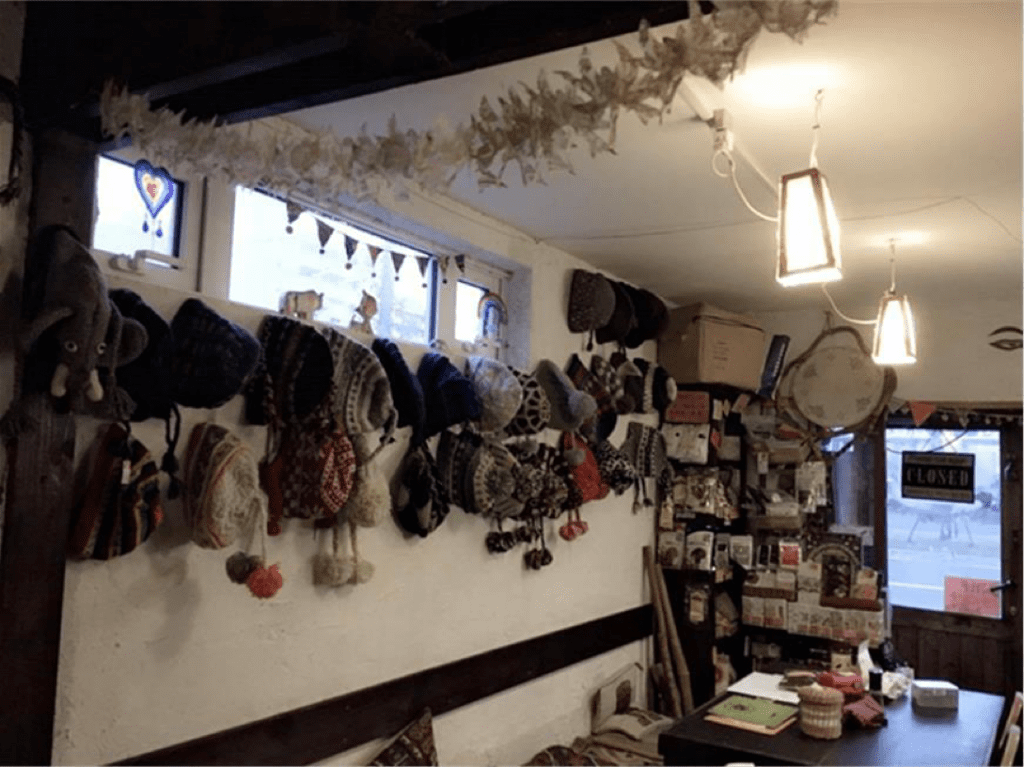Japan in Transition – Sapporo
By Ainslie Beattie 18th October 2018 Culture & Society
In our fifth instalment from Japan, we are introduced to Sapporo City and Hokkaido in Transition.
Although Sapporo City, Hokkaido is a big city with a population of 1.9 million, it’s surrounded by rich nature and is the central city of Hokkaido. Near Hokkaido University, which has the largest campus, “Fair trade crafts & restaurant, Mintaru” stands. Inside the shop, you’ll find many fair trade crafts and clothes from around the world, and Nepalese crafts purchased by the owner. Next to the shop space, there is a café serving Nepalese cuisine.
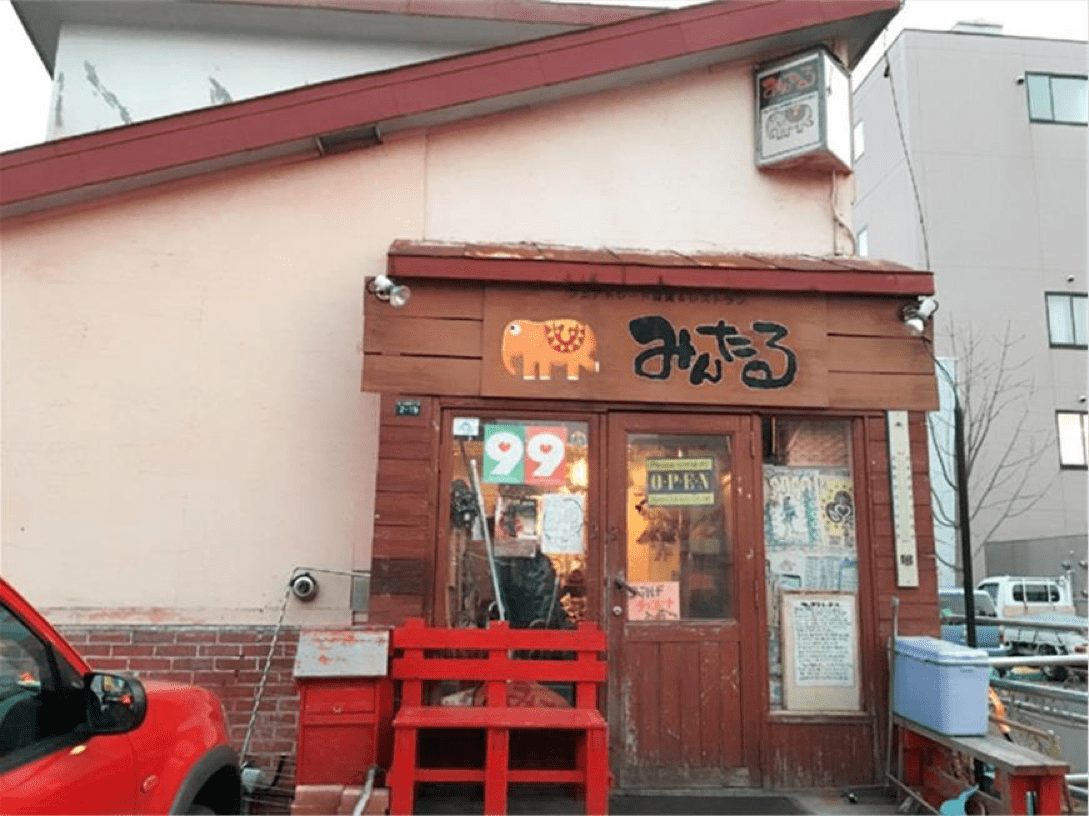
The owner is Mikayo Wada. Since she was a student, she has travelled to her favourite places in Asia and Africa. Through such travel experience, she noticed the gap between rich and poor there and started thinking about what she could do for them.
Since she was little, she has loved handmade crafts. So she thought that her favourite crafts could support them by dealing in fair trade products and opened her first shop in 2004. In 2011, she moved the shop to its current space and as a pioneering icon for fair trade or community café in Sapporo, her shop has been loved by local people.
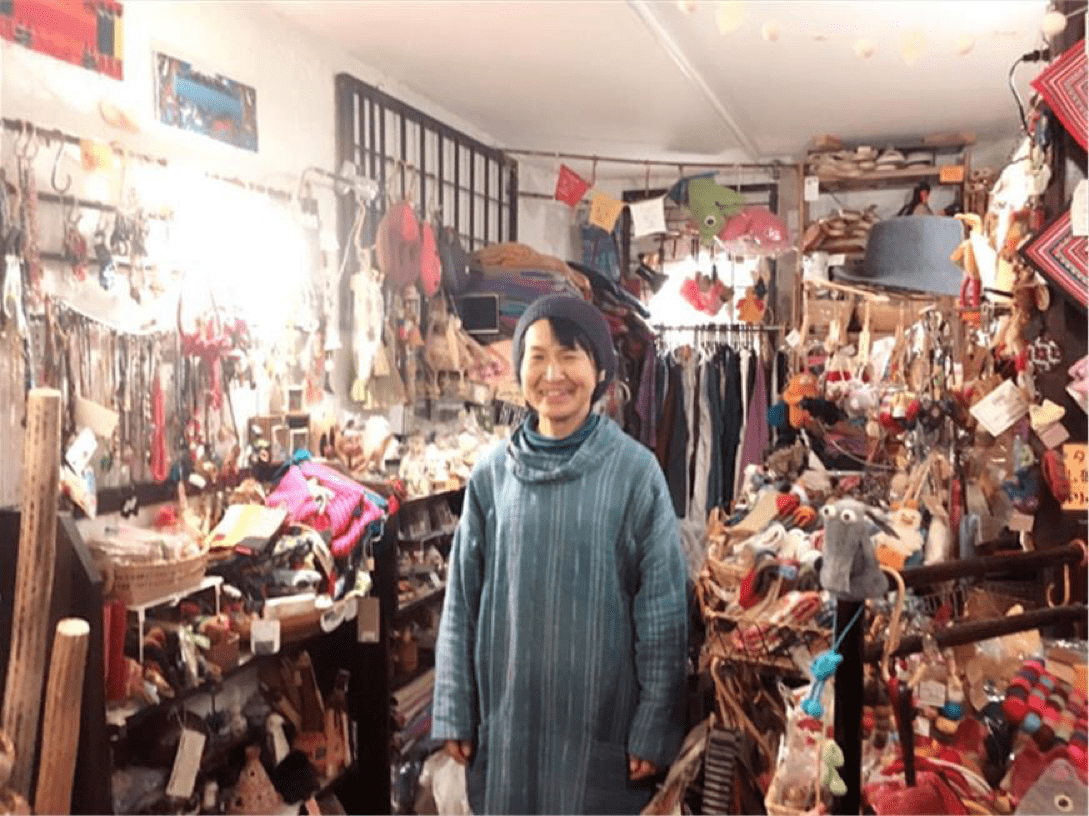


She set a craft shop and café in one space based on her experience, saying “Even before I started my shop, I was holding movie screening events with my friends. But it was difficult to find a place for such events. I thought that it would be nice if there was a place where we could have an event and after-party without hustling.”
At her shop, events are held almost daily, like live music, lectures, salons to hear people out, fortunetelling, chiropractic, environmental talks, discussion of constitutional problems, etc. Participants of such events become friends, drop by the café, check the crafts there, and learn about fair trade. In such a way, her shop is also a place to meet people.
Transition Town Sapporo was established after the Transition Town-related event held in August 2015. Currently, after a monthly meeting, events such as a workshop are held. So far, they have held various events from study meetings to outdoor activities, including movie screening events, permaculture study meetings, and solar cooker and rocket stove making. Ms Wada noticed that actually quite a lot of people are looking for such activities.
For example, in October 2017, she invited a guest speaker, Ms Riko Hirata, who has been doing permaculture for 18 years. She didn’t announce this event widely, but about 20 people attended the event. There were quite a few people who came to her shop for the first time.
A civic group had been holding a nuclear power plant study meeting before the 3.11 Great East Japan Earthquake, and they had only some regular people coming. But after the earthquake, when they held a lecture meeting on March 15th, over 70 people rushed to this event. Too many people came to the shop and they had to arrange a webcast immediately.
However, even after such a big disaster, people’s panic settled after only a relatively short time. She wondered why people won’t change.
“A sustainable society and environment are wonderful. And in addition to that, I want to keep valuing people’s communication as well as offering a place where people can get together.”
The name of the shop “Mintaru” means “a place where people communicate” or “square” in the language of Hokkaido’s native Ainu. I hope this shop will continue to be an important place where people can connect.
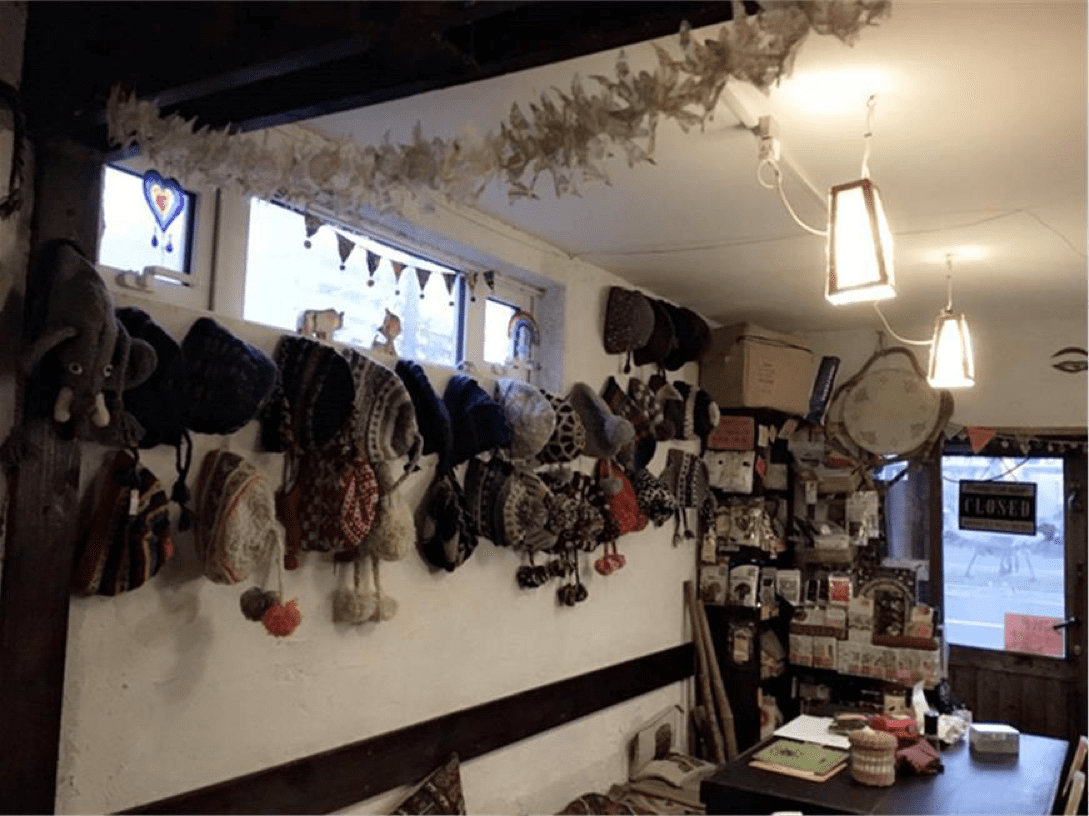


Another base of Transition Town Sapporo is the “Permaculture Research Center.” The representative is Yuki Mitsukuri. It is located in Minami-ward which is about 10 km southwest from central Sapporo, trying Permaculture (sustainable lifestyle) and practicing and researching it in his daily life.
For example, at the research center’s home base (an apartment where 4 family members live) contracted to use 5A electric power. Amazingly, the monthly electricity bill is only 500 yen. Also, he made an “experimental facility” where people can live without municipal electricity, gas or water in the primary forest near the research center’s home base.
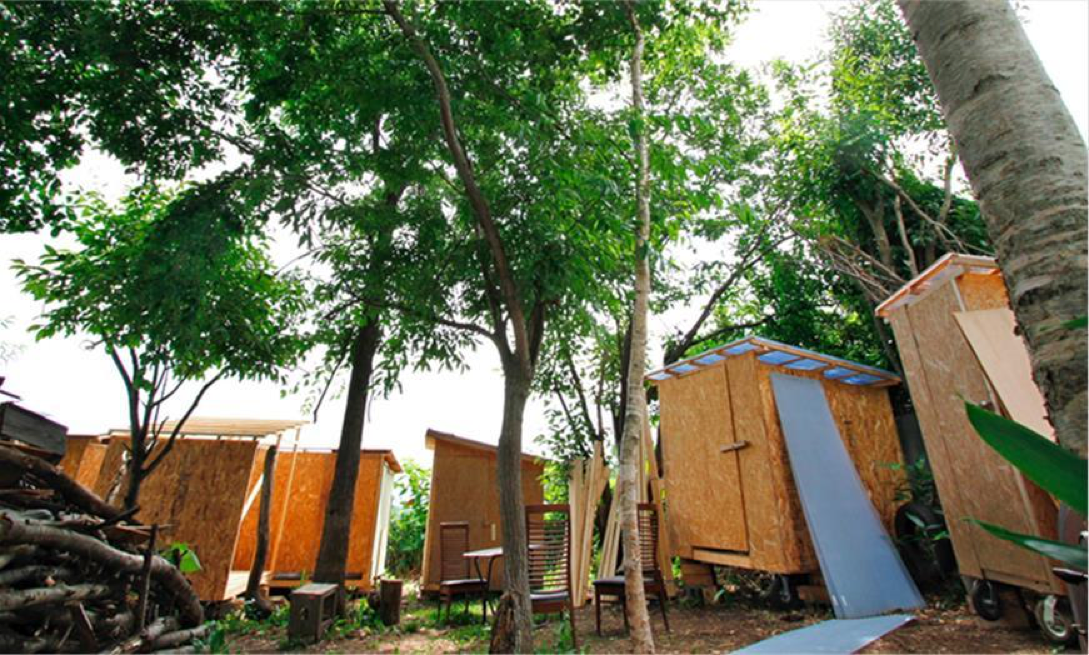


Since he was a Hokkaido University student, Mr. Mitsukuri has done research solutions to energy problems. After he graduated from the university, he worked on electricity and energy systems research at Tokyo Electric Power Co., Ltd. as a researcher. But he became keenly aware that his workplace wouldn’t be an ideal place where he could solve such problems.
“At Tokyo Electric Power Corporation, our research was done based on information provided by big companies and the government. For research, evidence is necessary. Such evidence came from big company’s thesis or information.”
Then on March 11th, 2011, the Great East Japan Earthquake occurred.
“After 3.11, information was in chaos. We were still trying to keep researching. But I found that such companies and the government were doing a sloppy job. I had believed that a nuclear power plant would break down once in a million years. I guess only a few dozen actual site workers at the nuclear plant division didn’t believe that.”
After the earthquake, he left Tokyo Electric Power Corporation. He resumed his research at the graduate school and was teaching at school. In 2013, he learned about the self-sufficient community in Thailand, through a friend’s introduction. He and his family moved to the community and spent some time there. And he was inspired by its lifestyle for solving energy problems, which had been the theme of his research.
At the community, I was practicing off-grid life “for fun.” They dig a well and generate electricity with small solar panels the size of a laptop computer screen size to pump up the water. The houses are made of bamboo and timber. And they cook on open fires. Inviting travelers from all over the world, they ask the travelers to help with farming and building the town to cover our stay and provide food. Artless and gentle Thai people. Happiness of being with my family all the time. There was a rich lifestyle that we can’t buy with money. “
Mr. Mitsukuri, his wife, and his two children loved the life there and started spending a few weeks to 3 months a year there.
“Please tell us about the Permaculture Research Center’s future plans.”
“Next year, I’m aiming to move to the field completely. And I’d like to purchase a mountain somewhere in Hokkaido. At the mountain, I’d like to accept volunteers to create a place to learn permaculture. People might think that life here is cold or hungry if I tell them we live without energy. But I’d like to show how much fun it is, showing the actual life here.”
While thinking about life without energy, Mr. Mitsukuri starting thinking about what is truly necessary for life which is the fundamental part of our lives. His natural posture toward his activity, enjoying anything he does, would make a great impact on many people who are not sure about modern society.
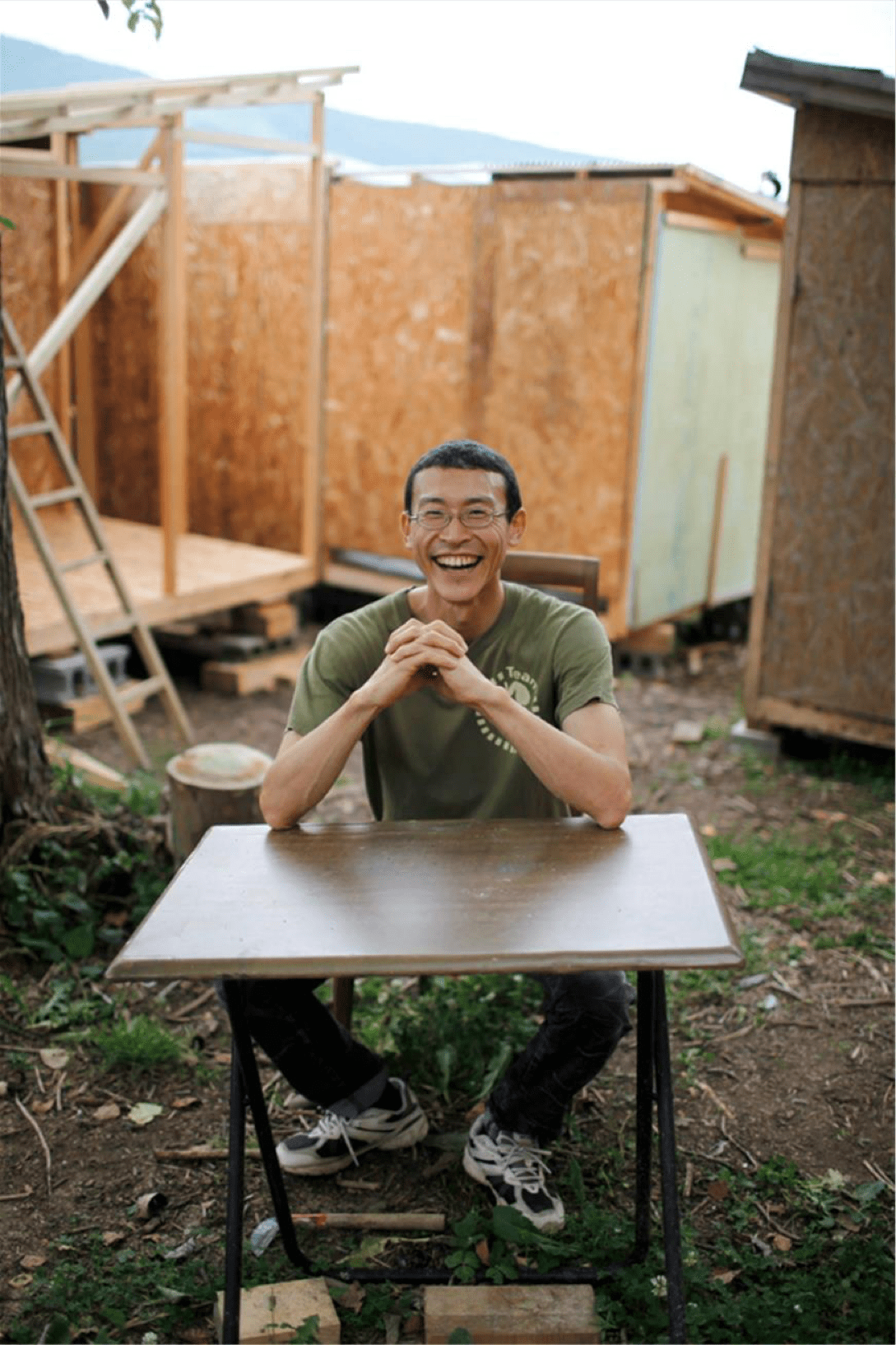


Fair trade crafts & restaurant “Mintaru”
2-19, 3 chome, Kita 14-jo nishi, Kitaku, Sapporo City
Open hours: 11:45-22:00 (closed on Sunday, Monday, and national holidays)
Tel & Fax: 011-756-3600
Permaculture Research Center
7-45, 8-chome, Kitanosawa, Minamiku, Sapporo City
Video
北海道札幌市は190万人以上が住む大都市でありながら、豊かな自然に恵まれた北海道の中心都市です。
日本一広大なキャンパスをもつ北海道大学のほど近くにある『フェアトレード雑貨&レストランみんたる』。
店内は世界各国のフェアトレード雑貨や服、店主自らがネパールなどで仕入れた雑貨類がズラリ。傍らにはネパール料理を提供するカフェも併設しています。



店主の和田美加代(わだみかよ)さん。学生時代から大好きなアジアやアフリカを旅するうち、現地の人々の貧富の差を感じ、何か力になれたらと思うようになったそうです。
子ども時代から手作りや雑貨好きだったこともあり、フェアトレード製品を扱うことで好きなことが支援になると、2004年に最初の店をOPEN。2011年には現在の場所に移転し、札幌でフェアトレードやコミュニティカフェの草分け的な存在として親しまれてきました。



雑貨だけでなくカフェを併設したのは和田さんの経験から。「店を始める前から映画上映会などを仲間としていましたが、場所探しが大変で。イベントから打ち上げまで気軽にできる場所があったらと」
店でほぼ毎日開かれるイベントは、音楽ライブ、講演会、傾聴サロン、占い、整体、環境、憲法問題などジャンルを問わず。イベントに参加した人同士が仲良くなったり、お茶をしにふらりと立ち寄り、雑貨を見るうちにフェアトレードを知るきっかけになるなど、自然な出会いの場にもなっています。
TT札幌は、2015年8月にTT関連のイベントを開催したのをきっかけに立ち上げました。現在月1回程度のミーティングのあと、ワークショップなどを開催しています。これまで映画上映会、パーマカルチャー勉強会、ソーラークッカーやロケットストーブ作りなど、勉強会から野外活動まで様々なイベントを企画するなか、和田さんが感じたのは、こうした活動を求めている人が案外多いのだと感じたこと。
例えば2017年10月には、パーマカルチャーを18年実践している平田理子さんのお話会を企画。告知をほとんどしなかったにも関わらず20名ほどの参加がありました。初めて店に来た人も多かったそう。
原発の勉強会も、311前から市民団体が主催していたものの、決まった人が来る程度。それが震災直後の3月15日のお話会には70名あまりが詰めかける事態に。店に入りきらず、急遽ネット配信をした経緯もありました。
そうはいっても、あれだけの震災が起きても騒いだのは一時。人々があまり変わらないのは何故だろうと感じたこともあったそうです。
「持続可能な社会や環境が素晴らしいだけでなく、人と人が有機的につながる場所づくりや、コミュニケーションを大切にしていきたいんです」という言葉が印象的でした。
店名の『みんたる』は、北海道の先住民族であるアイヌの言葉。「人々が交流する場所」「広場」という意味をもちます。これからも人と人がつながり合う大切な場としてあり続けてほしいです。



TT札幌のもうひとつの拠点となるのは、『パーマカルチャー研究所』。代表は三栗祐己(みつくりゆうき)さん。
札幌中心部から南西約10kmの札幌市南区で、パーマカルチャー(持続可能な生き方や暮らし方)を目指し、自らの日常生活で実践、研究しています。
具体的な実践として、研究所本部(家族4人で暮らすアパート)の契約電力は5A。月々の電気代は500円というから驚きです。また、電気・ガス・水道などの化石エネルギーやライフラインを使わずに生活する「実験施設」を本部近くの原生林に作りました。



三栗さんは北海道大学在学時代から「エネルギー問題を解決する」というテーマを掲げ、卒業後は東京電力の研究員として電力やエネルギーのシステム研究に携わります。が、やがてここでは自分が理想とする問題解決には至らないと痛感します。
「東電では大企業と政府の情報をもとに考え研究してきました。研究には根拠が必要で、それは大企業の論文や情報から積み重ねていくものだったんです」
やがて起きた、2011年3月11日の東日本大震災。
「311では情報が混乱するなか、それでも研究を続けようと思いましたが、企業や政府がいかにいい加減なことを言っていたのかが分かってしまって。原発は100万年に一回の確率でしか壊れないというのを信じていました。信じていなかったのは、原子力部門の現場にいた数十人ほどではないでしょうか」
震災を契機に東電を退職。大学院で研究を続け、学校教員をするなか、2013年に友人の紹介でタイの自給自足コミュニティの存在を知ることに。家族で訪れ過ごすうちに、この暮らしこそが長年のテーマだったエネルギー問題を解決するものだと衝撃を受けます。
コミュニティでは、オフグリット生活を「楽しみながら」実践していました。井戸を掘り、電動ポンプでくみ上げる電力は、ノートPCの画面ほどの小さなパネルが作る太陽光発電。竹や木などでできた家で暮らし、直火で食事を作る。世界中から旅行者を招き、住まいや食事を提供する代わりに、畑や町づくりを手伝うというスタイル。素朴なタイの人々から受けた優しさ。家族でずっと一緒にいられる幸せ。お金では得られない、豊かな生き方がここにはありました。
三栗さんの妻や2人の子供たちもここでの暮らしを気に入り、以来毎年数週間~3か月を過ごすようになります。
- パーマカルチャー研究所の今後の活動についておしえてください
「来年はフィールドでの完全移住を目指しています。そしていずれは北海道のどこかの山を手に入れたいと思っています。山では国内外からボランティアを受け入れ、パーマカルチャーを学ぶ場を創っていきます。
エネルギーを使わずに暮らすというと、寒いとかひもじいなどの印象があるかもしれないけれど、実際に見せることで、実は楽しいんだよということを、身をもって示していきたいです」
エネルギーを使わない暮らしを考えているうち、人生で本当に必要なものは何かという、根本的な生き方や本質につながるようになったという三栗さん。何事も楽しむ自然体な活動は、現代社会に疑問を持つ多くの人の心に響くに違いありません。



Video
- フェアトレード雑貨&レストラン みんたる
札幌市北区北14条西3丁目2-19
営業時間:11:45-22:00(日月祝日・休み)
Tel & Fax:011-756-3600
http://www.mintaru.com/2011/
- パーマカルチャー研究所
札幌市南区南区北ノ沢8丁目7-45
https://www.permaculture-lab.com/
